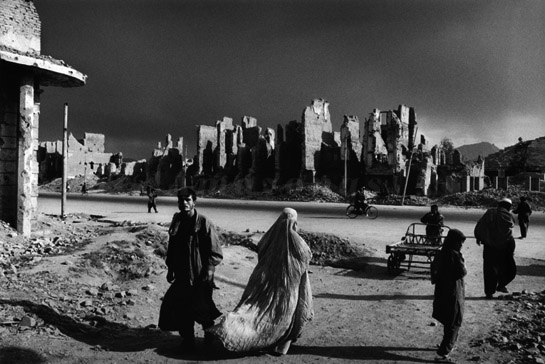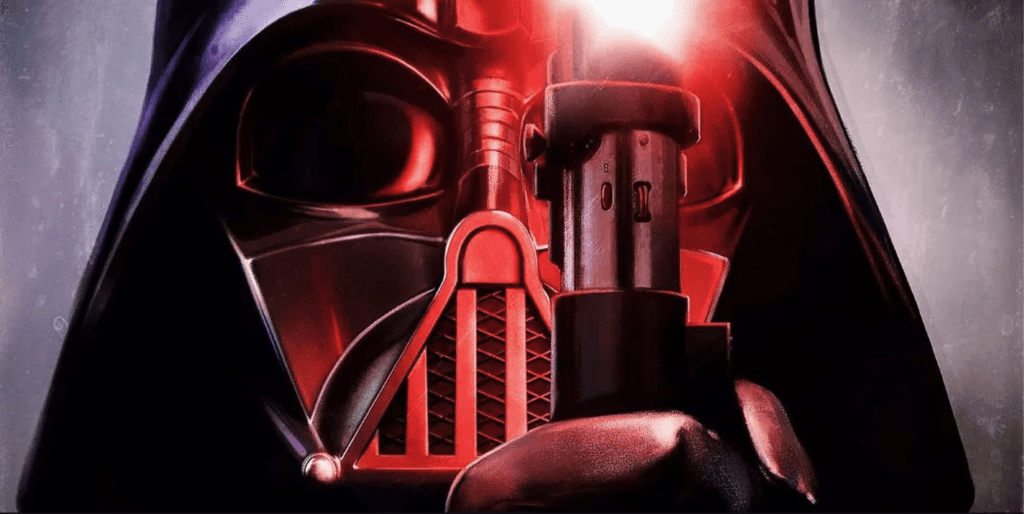How to Pray for the Wicked
01/22/2021The witches of Shakespeare’s Macbeth chanting around a simmering cauldron of spells do not give us a complete picture of what it means to be wicked. If they did, most of us would not qualify, and even witches themselves — some at least — would contend they are trying to do good. But since the definition of wickedness includes the simmering cauldron of our own hearts, we all win a participation ribbon in the race to override the loving, logical limits the Holy One has placed on us.
Having realized our own state, we are now well positioned to take the logs out of our eyes and pray for the wicked.
But before I show you these prayers, you need to know the assumptions I am making: I assume the Lord has a Plan A for the wicked, and I pray prayers for them that I would also want people to pray for me if someone deems that I myself am wicked.
And I might indeed need your prayers. If you see me drop a styrofoam cup in the forest knowing it will take five centuries for the thing to disintegrate, I might have crossed your line. If I vote for the wrong political candidate, I might have crossed your line. If I still believe that Scripture is designed to critique culture and not the other way around, I might have crossed your line. If I have become wicked, please pray for me.
What is the first thing we learn about our heavenly Father’s preferred disposition toward the wicked? Kindness.
“The Most High is kind to the ungrateful and the wicked.”
Luke 6:35
This is why we who belong to Jesus are commanded to not curse wicked people, but to bless them.
In Afghanistan, where my family and I lived during the ruin of the civil war, blessing the righteous and cursing the wicked were a part of the everyday culture. “May God abide with him; may God surround him as guardian,” were frequent blessings upon those who gave off a pleasing aroma to the speaker. But “May God strike him down” was an equally frequent epithet uttered after the name of a person who was a stench in the nostrils of the speaker.
Anger could of course fuel this to irrational extremes; to one dishwasher who broke a plate, the restaurant manager declared, “Your destiny is hell!” But as a whole, cursing was considered not just an invective of emotion but effective to injure, and therefore something to be avoided or combatted. It was considered so much so that one day, when a young man hurled a stream of curses at me as I walked down the street because I had prayed for the sick, the young Afghan friends who were with me raised a deflector shield of blessings for fear of what might happen to me. At one point the offended youth pronounced: “May an airplane fall from the sky upon your house and destroy all whom you love!” To which my friends fervently replied, “God forbid! May it never be!”
What was my response in that moment? To bless the curse-speaker. To minister kindness. “May the Lord prosper you; may the Lord raise your parents off their sickbeds; may you know His peace, His comfort, and His joy.”
And what was his response? Tear-filled eyes betraying the pathos of an orphaned soul that could trust no one. He chose to curse himself, for the pain of hoping was simply too great to bear. “God will never bless me!” was his parting pronouncement. Another person might have made another choice when offered kindness, but in this case, this is what the young man chose.

Wickedness was in no short supply in Kabul when we lived there. Death was not a far off rumor. It was right at the door. And wicked men kept inviting it inside. And being a good person was no defense. Over and over the Afghan proverb was fulfilled which says: “When the forest catches fire, it consumes the green wood as well as the dry.”
And while in patience the Lord waited for the cup of wickedness to fill to the point of pay-back, what were His day-to-day instructions to us who belonged to Him, to us who had to live in it?
But I say to you not to resist the evil, but whoever will slap you on your right cheek, turn to him also the other.
Matthew 5:39, Literal Standard Version
To actually do this was costly. Very costly. But I saw people do it, and quite literally. More than once did I see an Afghan offer a blessing of peace to the one who had struck his face or had broken his nose.
Apostle Peter commanded the believers to pray for and submit to the government, even to abide by its greed-tinged taxation system. Apostle Paul commanded this as well. Yet both of these men were killed by the very same government they had blessed and obeyed. Therefore we see that the form of kindness the Lord exercises is a robust, self-giving one and not a sentimentality. It is the kind of love that can look into the eyes of the jihadist whose blade is on the skin of your neck and say to him, “I love you” as your last words. That is the Lord’s Plan A for the wicked.
It might not be your Plan A, but it is the Lord’s. He prefers that the wicked come to their senses through connecting the dots. He envisions an Aha moment where they realize the Source of all goodness. We might view the wicked in our lives as far gone as Darth Vader, but whether they are or not, they each need an Aha moment like he did. Future generations are depending on it, as are future Star Wars films.

But we almost always miss it. It is hard to stick to Plan A. We hijack good and make it evil. We are like the passionate pagans of ancient Lystra who mistook Paul’s miraculous goodness for divinity and attempted to worship him. “Be our guru!” they appealed. But Paul appealed with equal passion to worship the Creator instead of the created — clay-pot apostles included:
“The Living God did not leave himself without witness, for he did good by giving you rains from heaven and fruitful seasons, satisfying your hearts with food and joy.”
Acts 14:17
In other words, the Creator has baptized the wicked in countless clues about His kindness, any one of which the wicked may pick up and ask himself:
“Where did this goodness come from, where this beauty and wisdom?
“Who is the author? How can I know him?
“What do I need to turn away from so I can know him? And how can I be saved from the evil that shadows all this good, from the evil that shadows me — from the evil that is me?”
These are the questions His kindness is meant to prompt; a learning curve leading to repentance.
In contrast to Plan A, Plan B is wrath and going through the ringer. This is another way to come to one’s senses. Like the time in childhood when I watched the Julie Andrews version of the movie Mary Poppins and attempted to fly by jumping off the roof of my home with mom’s umbrella. There was a painful consequence to my attempt at overriding the limits of the laws of aerodynamics. But going through the ringer worked. I came to my senses. I never tried to jump off the roof with mom’s umbrella again. I learned to purchase plane tickets. It was a much, much longer process, but I can fly now.
This is a choice we make. We don’t have to humble ourselves. We can hold onto our umbrellas. We often do. Even when we go through the ringer of His wrath.
“They cursed the God of heaven for their pain…They did not repent of their deeds and give Him glory.”
Revelation 16
It is up to us. As image-bearers of the Creator, we have been given the high honor of autonomy, of making the choice ourselves. Wrath is the two-minute warning on the timeclock of our choices.
Plan C is the lake of fire. It was designed for “the devil and his angels” (Matt 25:41). It was not designed for us. But we can go there if we choose. The angel said to John,
“Let the evildoer still do evil, and the filthy still be filthy, and the righteous still practice righteousness, and the holy still be holy,”
Revelation 22:11
What we see here is not an authorization to sin, but an admonition to live an authentic life. And if we authentically do not want to be righteous or holy, then it is perhaps better that we live that way, without hypocrisy or pretense, for in that way it is more likely that we may perhaps come to our senses, connect the dots, and discover the way of escape the Lord has provided. He does not desire that we perish into the tormenting consequences of a self-willed life.
Here is an example of authenticity. In my twenties I had a close relative boldly proclaim, “God is number two in my life. My family is number one. And nothing — not even God — comes between me and my family.” Such a statement does not appear in a vacuum, but it does appear in the heart of a boy whose father had prioritized his profession at the expense of his family. The vow was an attempt at avenging sin, but it was a self-willed choice, and as such, it did not work out the way he had hoped. It never does. But it did attract God. Transparency always does, even homely transparency. It gave God much to work with.
Decades later, as this same relative sat alone in his home a widower with children grown and gone, and no one but the loyal Scottish Terrier to comfort him, he connected the dots. He came to his senses. The Kind One, so patient with this man’s learning curve, was there to lead him into the life that is truly life, where angry vows are not the keel of our hopes, but faith in Christ is.
So we see that, even here, on the brink of Plan C, we can surrender to His love and His limits if we so choose.
Along with these assumptions, this is the litmus test of the integrity of my prayers for the wicked:
“If I were as stubborn as a mule, hurling myself headlong into sin and dragging family, friends, and community down to the pit with me, what would I want people to pray for me?”
The answer: I would want someone to pour a billion ball bearings on the road I’m running. I would want someone to mercifully cause my power grab to become a pratfall. I would want my colorized illusion of being a champion to become a black-and-white Charlie Chaplin film. I would want to fall on my rear and come to my senses.

It is all of these assumptions above that inform my prayers for the wicked. My assumptions are just that: assumptions. They may develop over time into something other than they are now. My friends who practice pacifism, for example, would probably not be able to pray for soldiers the way I do — I who assume that, whether I like it or not, soldiers will be given orders to pull triggers. I imagine myself in their boots and what I would want prayed for me in the heat of battle. I try to serve them. But I acknowledge the imperfection of what I offer.
Here are some sample prayers exploring the creative options Plan A may bring to the wicked.
Maker of Heaven and Earth, may your kindness lead them to repentance. May they make the discovery that disarms them.
Heavenly Father, cut the cords on the cosmic powers that animate their pride, that they might come to their senses and make courageous choices in accordance with a humble recognition of what is actually true.
Gracious Lord, gently dissolve their ability to coordinate activity, communicate coherently, captivate the imagination of the crowd, and capture funding. May this cause them to come to their senses and stop sinning, for their sake and for the sake of all whom they influence.
Holy One of God, if their hearts are granite, and if they are committed to coercion, to violence, or to the death of others, please reduce them to mere men, on a naked earth, before an open heaven and a Living God, whom they can turn to even in the eleventh hour of their lives.
Lamb of God, should the wicked draw the sword anyway with a heart as hard as ancient pharaoh, I pray for those who bear the sword in the name of the governments of the nations which you have established. (Rom 13:1) May they restrain and avenge evil (Rom 13:4). Insofar as the cause is just, grant each soldier under orders to open fire these three last-ditch gifts to minimize loss:
Accurate intelligence
Accurate aim, and
Personal repentance
As long as they are drawing the sword, may it not cut in ignorance or error. And in the wrath of that moment remember mercy, that both the one who falls and the one who conquers would turn away from every wrong they know they are doing before the cord of life is cut.
Restore us all to your Plan A, heavenly Father. Make all things new. And if Plan A has utterly perished, let Plan Grace prevail. The plan the cross planted. Abound in your creativity to cause wickedness to bend the knee as a sign of The Day when we all, the wicked and the just alike, will bend the knee before the king of kings, when the books will be opened, secrets will be laid bare, and all will receive their just compensation.
In Jesus’ name we pray, Amen.
~ km
© Kurt Mähler
“Cosmic powers” reference may be explored by reading a commentary on Ephesians 6:12 in the essay, The Three Heavens.
Tagged as: courage, kindness, prayer, repentance, wickedness
What a wonderful reminder to be kind to all. To pray for change through grace. Overcoming evil with good.
Thank you for leading out in how to pray for the wicked and love our enemies.
Our adversary is the Wicked One. Our battle is not against flesh and blood.
If the battle is the Lord’s we will pray as He taught us and directed us to pray.
May we be strong and courageous as we follow Jesus and concentrate on Him !!!
Thank you, Kurt, for this insight on praying for the wicked. It reset my compass. Thank you!
So much to embrace as we pray for those near to us and those we only know because of their infamy. Grateful for this deep examination of my heart and guide to intercession.
Kerri, your words are all the deeper because of your leadership of Unbound Houston , igniting hope to end human trafficking. Your team not only makes the community aware of that wicked world; your team prevents it and advocates for the sake of the trafficked. Yes, Kerri, your prayers are all the deeper because of who you are and what you know. ~ km
Realigning message that rallies my heart to the way of Jesus and those who follow Him. Yes, this is what we must do. Who we must be.
O Lord please have mercy on me, help me to forgive. Help me to spread Your grace.